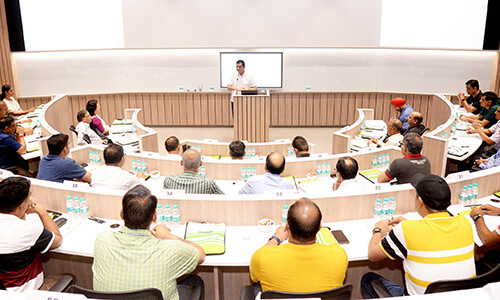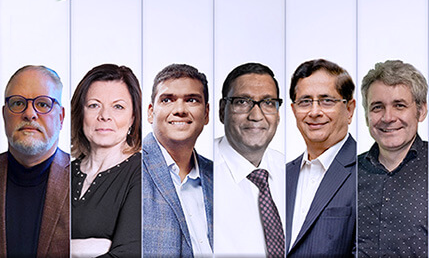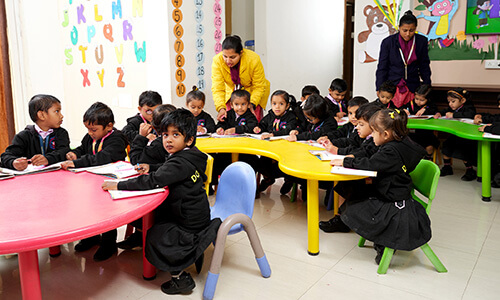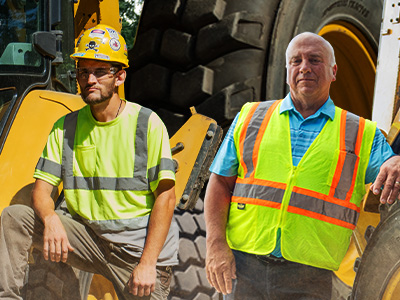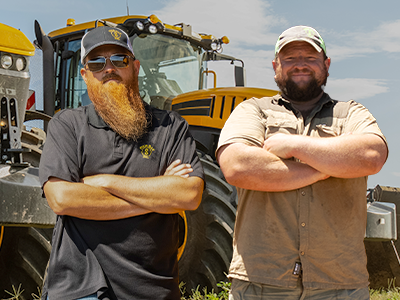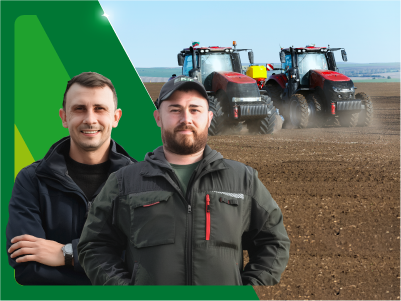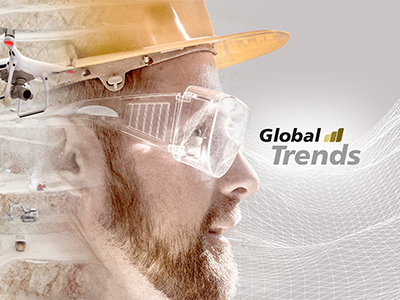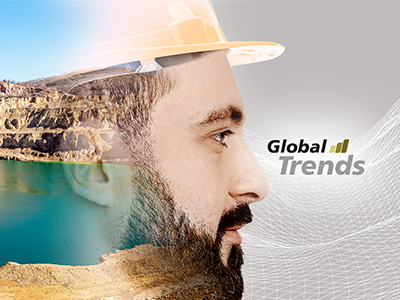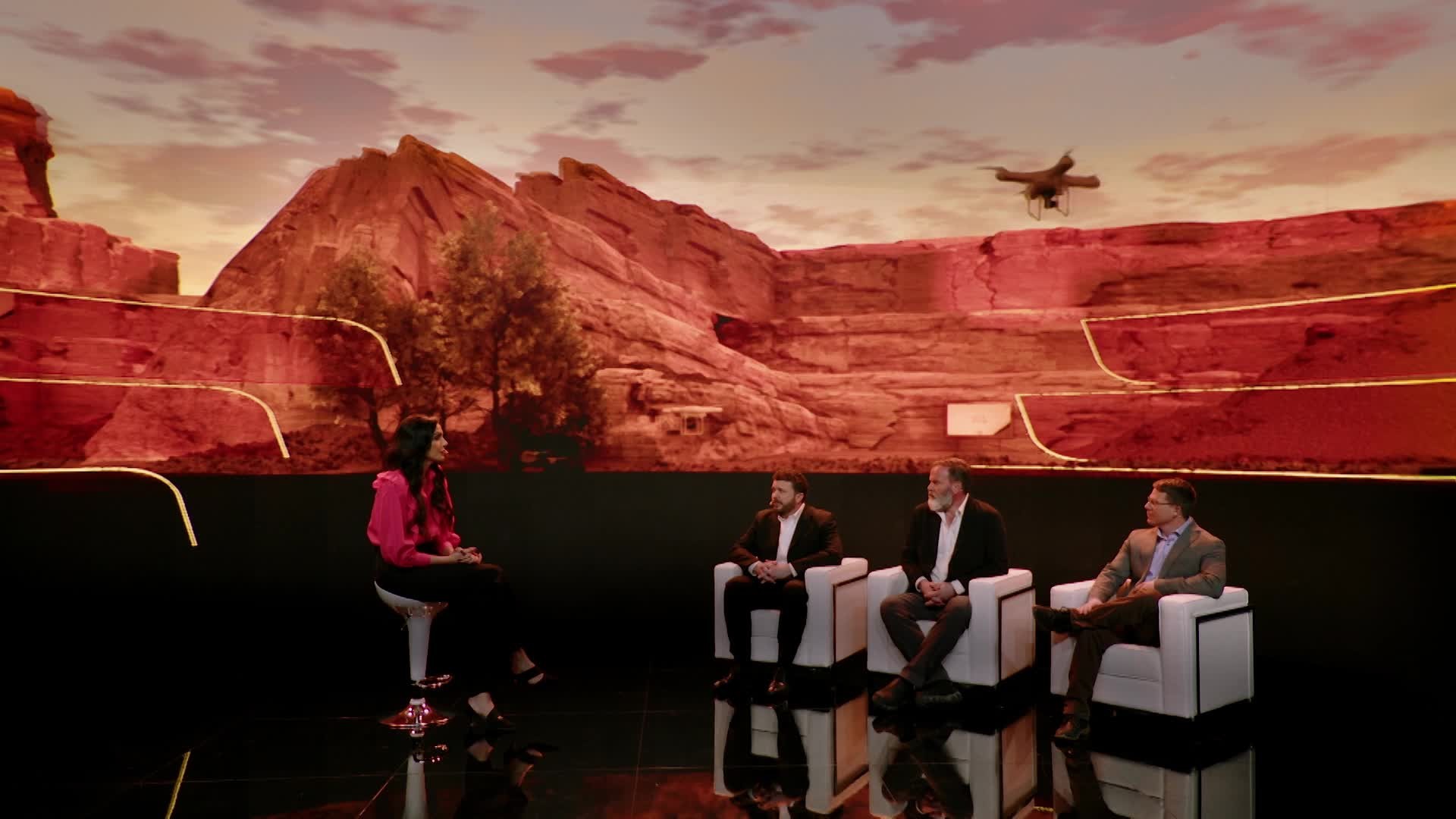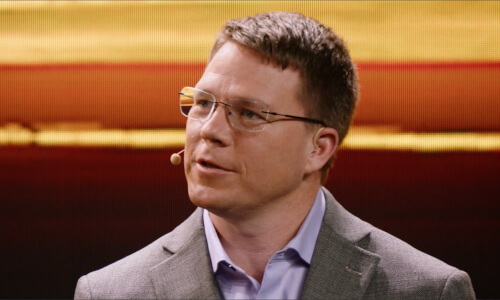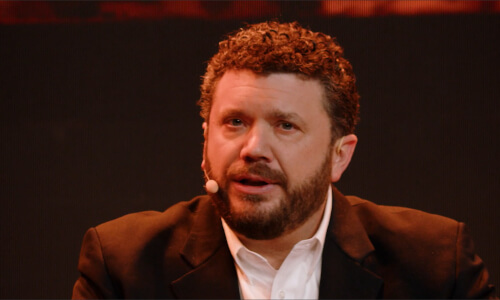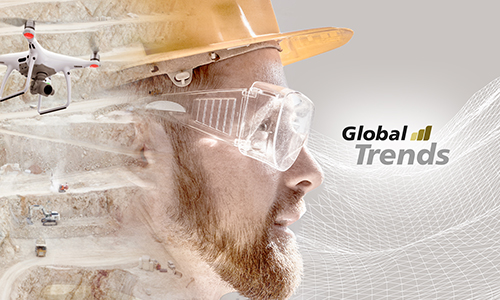Let's welcome the first guest. He is the executive editor of mining.com, the world's most widely read mining news and opinion site, with over 700,000 readers every month. A highly respected journalist, he's even listed in the who's who of mining.
Please welcome Frik Els, come and join me.
Welcome, Frik.
Just before we get talking to Frik, if you're using social media, please don't forget to follow the episode across our channels, log in, share your thoughts and reactions and open the discussions with your fellow viewers from around the world. It is your chance to get involved with Global Trends.
Frik, welcome to BKT Global Trends. It's a pleasure to have you join us today. It's not every day I interview somebody listed in the mining who's who.
Thank you, Saana. Yes, technology is definitely helping to bring sustainable mining across the world. But I know we don't have lots of time and we have so much ground to cover.
Thanks, Frik. I hope we can flag some of the most important topics. As we chat throughout this series, we're trying to identify those key trends. Tech and automation, is it an area where the industry is making the most progress?
That is exactly right. All the major miners are turning their fleets electric, they're automating different processes and it's happened fairly quickly and now it's part of every mining company's plans, whether they're big or small.
So now it's steamrolled and everybody's talking about it.
Yep, it concerns the nature of mining. You have to build the mine where the deposit is, and mining companies need to find a way to extract the resources and overcome these obstacles and also at the same time minimise their impact on the environment.
Interesting. How are they doing that? Can you share some examples?
Yes, take the desalination plants built for copper mines in Chile. Some of these mines now do not use fresh water at all. At the same time, you have gold mines in remote locations that use renewable power on a 100% basis. Yes, and you mentioned electric vehicles earlier in the conversation.
Mind elaborating on that?
Yes, it's great to electrify your truck and have fewer emissions, use less diesel,
etc. But these are big businesses and they've realised that at the same time you can save money through automation.
Okay, there were some pros, but what about the cons?
Given the current focus on environmental issues, will this rush of new tech open-up resources in areas that would not previously have been considered for extraction?
That has always been the case in mining. You're always depleting the resource. Sometimes, it just becomes uneconomical to extract the metals. The ore grades are declining, and you are forced to mine more and more material just to extract the same amount of copper. For instance, in Chile, which produces 30% of the world's copper, they've been mining for more than 150 years. There's always a push for new discoveries and I think probably the next frontier for mining is undersea mining. People have come out against it, to my mind prematurely, but it's possible to mine the deep sea in a much greener way.
That's still a positive.
So, tech makes us more responsible.
The greater regard for the environment, lower footprint, fewer problems with
remediation. We can't do without minerals, can we?
It's not a viable argument to say we'll do without mining. You just can't say that. The only way to get rid of fossil fuels is to increase mining around the world exponentially. You can't electrify without copper, you can't have electric cars without lithium, you cannot build a solar farm without silver, and you can't build windmills without rare earth. To get rid of fossil fuels and to stop mining, it just doesn't make sense. The world will come to a standstill.
That would be quite a tricky problem to have. So, we can't talk about tech without mentioning labour, and automation robotics are creeping into many sectors. People worry about job displacement, job losses.
Yes, of course that happens across many industries. But I would say given the growth in mining, it's less about the absolute numbers, but it's more about the kinds of work that miners are doing.
Now, when you remove people from menial or manual labour in tasks, I suppose there can still be a positive.
Oh absolutely, yes. It frees up a person that would be sitting behind the wheel of a truck all day. They can now move into other areas of mining, work in the community. These companies and mines in remote locations, they build hospitals, they build schools, they even have agriculture programmes. And on the other side, I think there is an issue within the industry of finding highly skilled labour.
There are so many changes in engineering and chemistry, you need to get highly skilled people.
Yes, and I've heard this thing about people who are using plants to extract minerals from soil. Is that right?
Yes, these kinds of innovations happen all the time in mining. You have bacteria, you can use bacteria to extract gold. You can use phytomining as well. The thing is though, to go from the lab to commercialisation takes a long time. You can just take lithium-ion batteries. It was first researched and developed in the 1970s. It was only commercialised in 1991, and only now I'll be talking about implementation at scale. There are other examples, heap leaching, for instance, which is now widely used, uses chemical extraction of ore stockpiles. It's more energy efficient, you're able to get more metal out of the ore. Other technologies that are also used, say, block caving is where you actually undermine the ore body and then you use gravity so that the ore kind of collapses in on itself.
Wow, that is absolutely fascinating.
Frik, you've put the importance of tech into context. Now let's go back to some of those points during our discussion later in the show. But just before we move on to our next guest, we're going to put you in the hot seat with our Ask Away! feature.
Are you ready for it?
I am.
Okay, good. Frik, here we're going to ask you a question we've picked from our social media channels. This one, I think is quite relevant not just to mining, but the application of technology in any industry. So, the question is: What are the barriers to adoption of mining technology?
I think we need to go back to the very definition of ore. It's only called ore if you can economically extract the metals from it. If not, it's just rocks. So usually, the barrier to build a mine is cost. Are you going to be spending billions up front and have questionable returns?
Wow, fascinating. Well, marvellous insights Frik. Thank you again and we'll see you again towards the end of the show.
-
 Frik Els
Frik Els -
 Andrew Petruska
Andrew Petruska -
 Chris Rhoades
Chris Rhoades
In this series
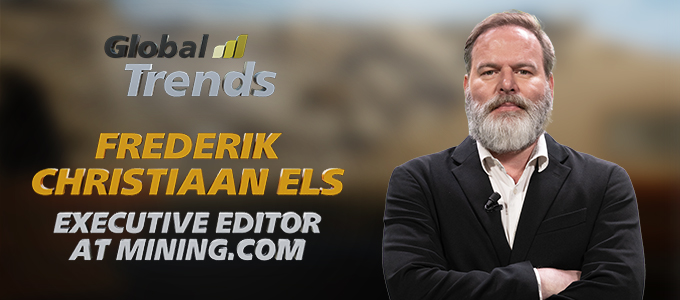
Frik Els is the executive editor of MINING.COM, the world’s premier source of news and opinion on mining and metals with a weekly readership of more than 200,000 industry professionals across the world.
Frik has focused his writing and public engagements on the green energy transition and the raw materials needed to meet climate goals and combat global warming. He created the EV Metal Index providing insights into the greatest disruption to the auto and extractive industries in a century.
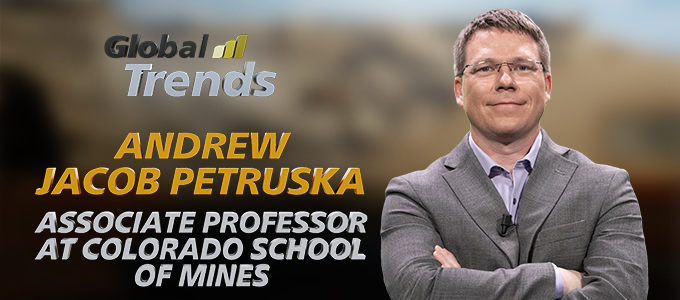
Dr. Andrew Jacob Petruska is currently a tenured Professor of Mechanical Engineering and the Director of the Robotics Interdisciplinary Graduate Program at the Colorado School of Mines, Golden, that he joined in 2016.
Awarded an NSF IGERT Traineeship during his PHD to study noncontact magnetic manipulation, he developed the first real-time reconfigurable magnetic manipulation system.
His current research focus has pivoted to perception, state estimation, and control in GPS denied environments for applications ranging from underground mining, search for rescue, and on-orbit manufacturing, to lunar construction, navigation and mining.
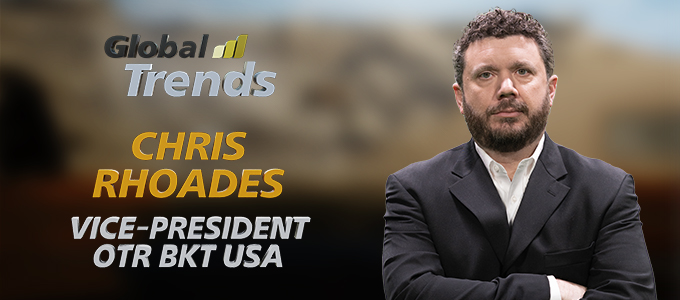
With a family tradition in the OTR sector that goes back to 155 years ago, Chris Rhoades started his career by working on tire tracking programs.
He then joined BKT in 1999 as Senior Product Manager, Technical Solutions, and used his expertise to develop a new technology: SPOTech. It is a cutting-edge monitoring system that collects data on haul truck activities by means of GPS systems, GoPro cameras and accelerometers for improving productivity, efficiency, and operating conditions within mining sites or quarries.
With 24 years’ experience in BKT, he is now BKT Tires' US Vice-President for OTR. He's passionate about partnering with customers and dealers to leverage solutions to reduce their total cost of ownership.
